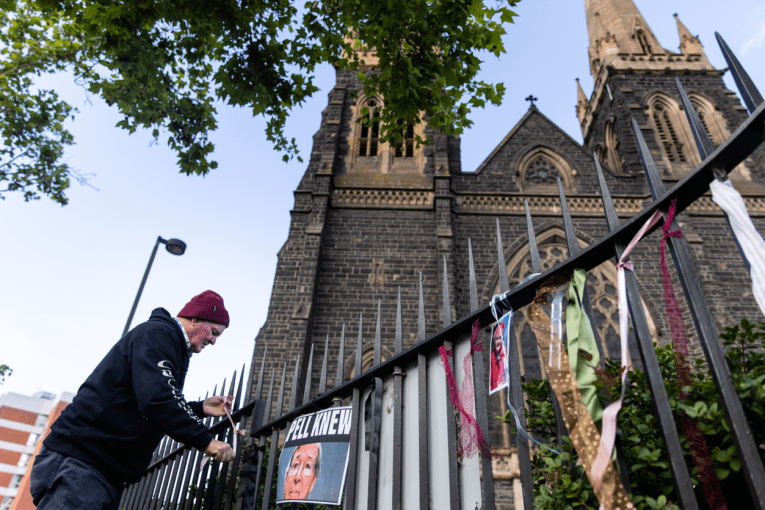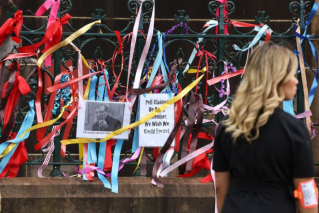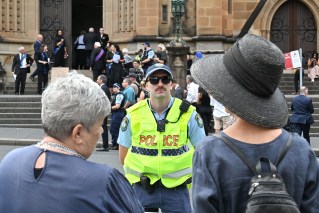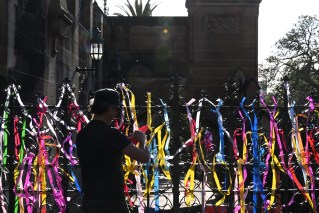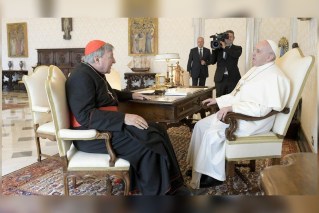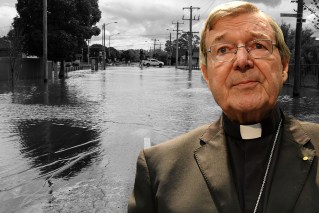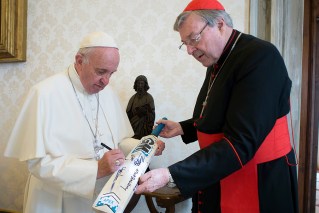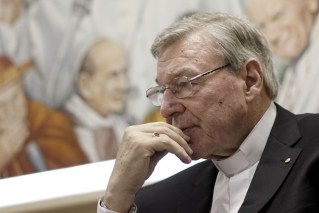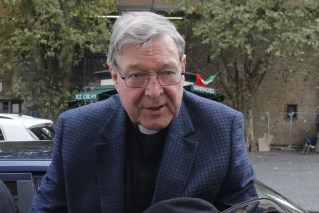Pell: ‘I’m not here to defend the indefensible’
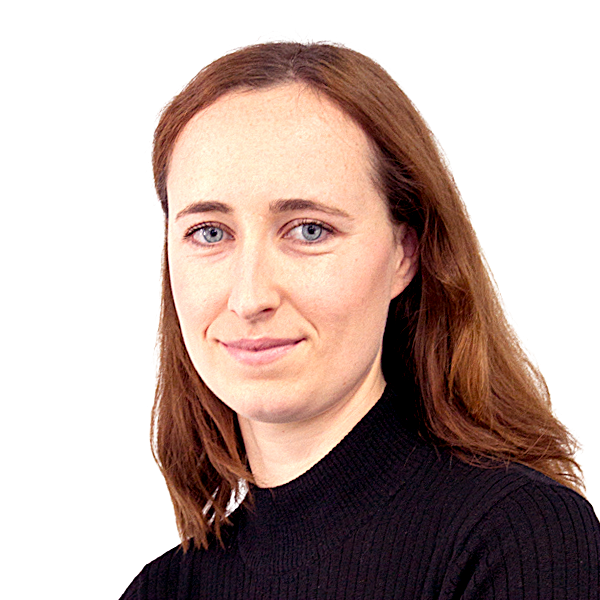
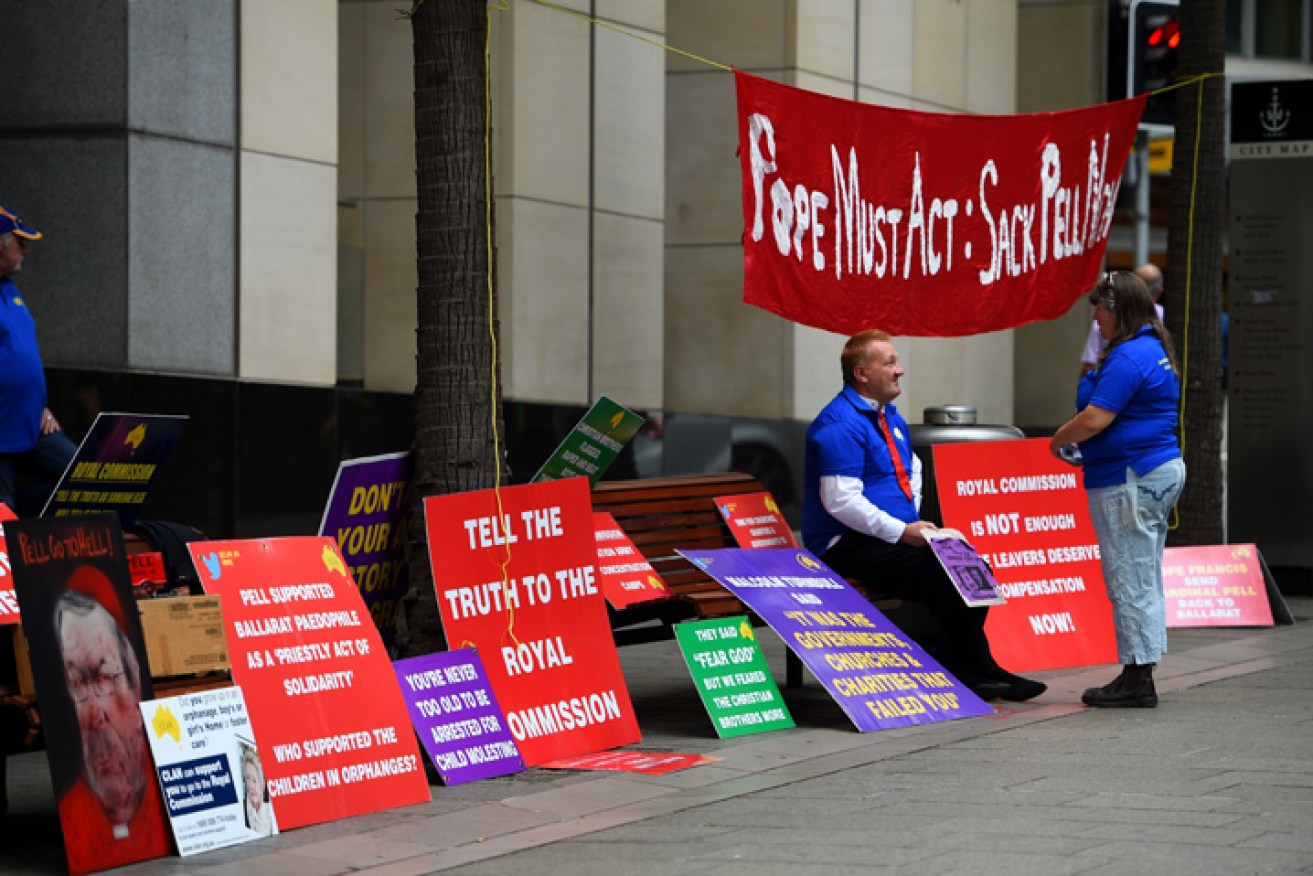
Demonstrators are seen with placards outside the commission in Sydney. Photo: AAP
Cardinal George Pell has begun his video-link testimony by admitting the Catholic Church made “enormous mistakes” in its handling of child sex abuse.
Australia’s most senior Catholic testified from a hotel in Rome, giving evidence about Catholic abuse in Ballarat and Melbourne as part of the Royal Commission on Institutional Responses to Child Sexual Abuse on Monday morning (AEDT).
Cardinal Pell admitted that children at the time were unlikely to be believed if they had come forward with allegations of abuse.
• Pell testimony: what to expect
• Pell may never come home
• Another song for Cardinal Pell recorded
• Abuse survivors Rome-bound for Pell testimony
He said the failures of the church had mainly been personal failures and not structural failures on behalf of the church.
He also highlighted the problem of paedophilia not just within the church, but in society as a whole.
“Let me just say this, as an initial clarification, and that is I’m not here to defend the indefensible,” Cardinal Pell said.

Cardinal Pell arrives to give testimony in Rome. Photo: Twitter
“The church has made enormous mistakes and is working to remedy those but the church in many places, certainly in Australia, has mucked things up, has let people down. I’m not here to defend the indefensible.”
An Italian doctor deemed him too unwell to travel to the royal commission in Sydney.
A crowd-funding campaign raised money to send a number of the sexual abuse victims and families to watch the Cardinal’s testimony in Rome.
When questioned over his knowledge of child sexual offenders in the Catholic Church during the 1970s, the Cardinal repeatedly said he did “not recall”.
“I don’t have any clear such recollection... I have no clear recollection of my knowing that he was sent off for such treatment,” the Cardinal said when asked if he knew Paul David Ryan was sent away in 1977.
Cardinal Pell served as episcopal vicar for education in Ballarat from 1973 until 1984.
He described the role as “the bishop’s representative.”
“That meant that I chaired the Ballarat diocese in education commission,” he said.
“I sometimes represented the bishop at openings and things like that, celebrations and actually most of my time was spent – I was also chairman of the board of small teachers college called the Sacred Heart teachers’ college and most of my time was spent trying to ensure its survival and it did survive as the Aquinas campus now of Australian Catholic university.”
Despite admitting he was the link between parents and the church during his time in Ballarat, the Cardinal said he could not recall having sexual abuse being ever reported to him.
“My memory might be playing me false,” the Cardinal conceded after he was pushed by the questioner.”

Demonstrators are seen with placards outside the commission in Sydney. Photo: AAP
When asked, Cardinal Pell said the church’s handling of paedophile priest Gerald Risdale as “catastrophic”.
“If effective action had been taken earlier, an enormous amount of suffering would’ve been avoided,” he said.
“He was given chance after chance after chance, shifted him around and initially at least, trusted excessively in the possible benefits of psychological help.”
The Cardinal claimed that on at least one occasion, Gerald Risdale was treated for anxiety and not paedophilia.
“He was anxious because he was going to be charge in relation to his paedophilia, wasn’t he?” quipped questioner Ms Furness.
“So the record showed,” the Cardinal said.
Cardinal Pell said he had no knowledge that Bishop Mulkearns had sent Gerald Risdale away for ‘treatment’ after his paedophilia was discovered.
When asked if he was ever approached by students or parents with claims of sexual abuse, Cardinal Pell said he could not “remember such complaints”.
‘Very controlled answers’
Child abuse survivor David Ridsdale said he wasn’t very impressed with what Cardinal Pell had told the commission so far.
“It’s early days but they’re very controlled answers, there seems to be lots of references of memory problems before any memory problems being raised,” he said.
“Words are one thing, actions are another [and] we’re waiting for the actions … including ensuring not only that those catastrophes never happen again but to be acknowledging and explaining why those catastrophes happened.”
The Royal Commission on Institutional Responses to Child Sexual Abuse will run for three days, hearing four hours of evidence per day.
Cardinal Pell:
1. I saw nothing
2. I know nothing
3. I did nothing— Rhys Muldoon (@rhysam) February 26, 2016
